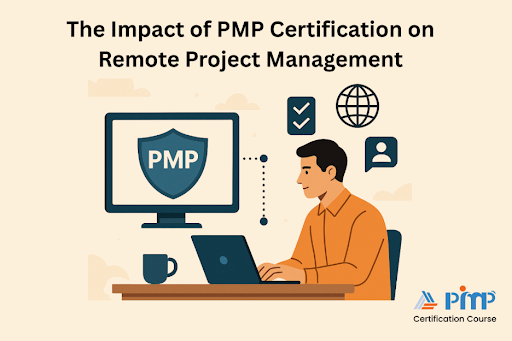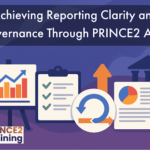Remote work is no longer just a trend, it has become a standard in many industries. For project managers, this shift has brought new challenges and fresh opportunities. Holding a PMP Certification can make a big difference in this evolving landscape. If you are considering CAPM vs PMP, the latter offers greater recognition and advanced skills that directly improve your ability to manage remote teams.
In this blog, we will explore how PMP Certification shapes success in remote project management.
Why PMP Certification Matters More in Remote Work
Strong project management abilities are now even more crucial due to remote work. Although technology can facilitate communication, a professional manager’s knowledge and structured approach are what make everything come together. A manager’s ability to manage intricate, dispersed projects is confirmed by their PMP Certification. PMP provides more in-depth analysis and sophisticated tactics than CAPM, which are essential for the success of remote projects.
How PMP Certification Shapes Remote Project Success
Below are the different ways PMP Certification helps managers thrive in remote settings:
Building Trust Across Distance
The foundation of remote work is trust. Project managers must develop new approaches to build team confidence and establish credibility in the absence of face to face contact. Professionals with the PMP Certification receive training in risk management and communication frameworks. Even when working across time zones and cultural boundaries, these abilities enable managers to swiftly establish trust. Certified managers demonstrate consistency and dependability by using systematic approaches, which are essential in remote work environments.
Mastering Remote Communication
A project can succeed or fail based on effective communication. It becomes even more crucial in remote management. The PMP Certification equips managers with the skills to effectively organize meetings and updates. Certified managers understand how to use clear reporting and frequent checkpoints in place of convoluted video calls or lengthy email chains. All team members remain in agreement thanks to this organized communication, which also avoids expensive misunderstandings.
Enhancing Collaboration with Global Teams
People from many nations and cultures frequently participate in remote initiatives. Managers who hold the PMP Certification are more equipped to deal with this complexity. It addresses topics including dispute resolution, cultural awareness, and stakeholder management. Certified managers can maintain emphasis on project objectives while balancing cultural variances. For international teams, this capability not only fosters greater collaboration but also a more wholesome and welcoming workplace.
Leveraging Technology for Project Control
Technology plays an important role in remote project management. Technology is the foundation of dispersed work, from project management software to video conferencing. The PMP Certification enables managers to successfully integrate tools with processes. This ensures that technology functions as both a system of responsibility and control and a means of communication. With the appropriate technology, certified managers can map project demands, clearing up confusion and guaranteeing efficient execution.
Managing Risks from Afar
Remote teams make it more difficult to recognize and control risks. A methodical approach to risk management is provided to managers via PMP Certification. Early risk identification, impact analysis, and reaction planning are all part of this. Certified managers use these tactics to prepare for hazards unique to remote work, such as poor connectivity and misunderstandings. Regardless of the team’s location, they provide stability to projects by lowering uncertainty.
Creating Measurable Outcomes
Measurable results are essential for remote project management success. Performance evaluation becomes challenging in the absence of a clear framework. Managers with PMP certification are guaranteed to be able to establish baselines, define KPIs, and monitor project success. Presenting outcomes to clients and senior management is made simpler with this degree of clarity. Teams are also better able to comprehend how their efforts fit into the bigger picture.
Conclusion
Project management has changed as a result of the shift to remote work, becoming more intricate but also more exciting. The structure, abilities, and self-assurance needed to lead teams and produce outcomes successfully across international borders are provided by PMP Certification. From communication to risk management, every area benefits from the practices learned through certification. If you want to take your remote project management career forward, consider PMP Training as the key step toward achieving that goal.
Keep an eye for more latest news & updates on techinfobusiness.com!



